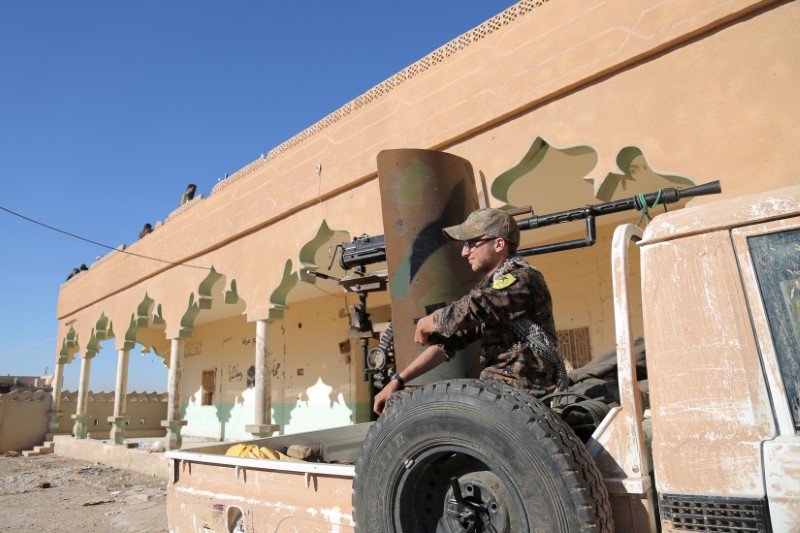By Tom Perry
BEIRUT (Reuters) - A U.S.-backed alliance of militias fighting Islamic State hopes a U.S. decision to ease some restrictions on arming groups in Syria will lead to them getting anti-aircraft missiles, its spokesman said on Tuesday.
Although Islamic State does not have warplanes, the Syrian Democratic Forces (SDF) alliance wants shoulder-fired anti-aircraft systems to protect its forces from potential future enemies, spokesman Talal Silo told Reuters.
He declined to say who these could be, noting there was currently no armed confrontation between the SDF and the Syrian government and its Russian backers.
Russian Foreign Ministry spokeswoman Maria Zakharova said on Tuesday Moscow regarded the U.S. policy change as a hostile act and a "direct threat to the Russian air force".
The Syrian government has been heavily backed in the war by Russian aircraft.
The SDF, backed by U.S. special forces in a campaign that has driven Islamic State from swathes of northern Syria, fights separately from the rebels opposed to President Bashar al-Assad.
It is dominated by the Kurdish YPG militia, which has established a large self-governing area in northeast Syria.
The YPG has mostly avoided conflict with Syrian government forces, but Syrian warplanes carried out air strikes on the mostly Kurdish-controlled city of Hasaka in August.
"NUMBER ONE" ALLY
Assad opposes a federal vision for Syria which Kurdish groups and their allies say should be the foundation for ending the war.
Neighbouring Turkey is also hostile to the YPG, fearing that expanding Kurdish influence in northern Syria will fuel separatist sentiment in Kurdish areas of southeast Turkey.
"Currently there are no planes targeting us but in the future they might, and on this basis we are asking for them," Silo said in an interview.
The SDF was the "number one" U.S. ally on the ground in Syria and should be the first to receive such weapons, he added.
Silo said the U.S.-led coalition had boosted military support to the SDF at the start of its latest campaign against Islamic State in Raqqa province, providing them with anti-armour weapons used against suicide car bombers.
Syrian rebel groups fighting Assad and his allies in western Syria have received U.S.-made anti-tank, or TOW, missiles, as part of an aid programme backed by the U.S. Central Intelligence Agency, Turkey, Saudi Arabia and Qatar.

The United States has however in the past declined requests from rebel groups for anti-aircraft missiles, fearing they could end up in the hands of Islamic State and other jihadist factions.